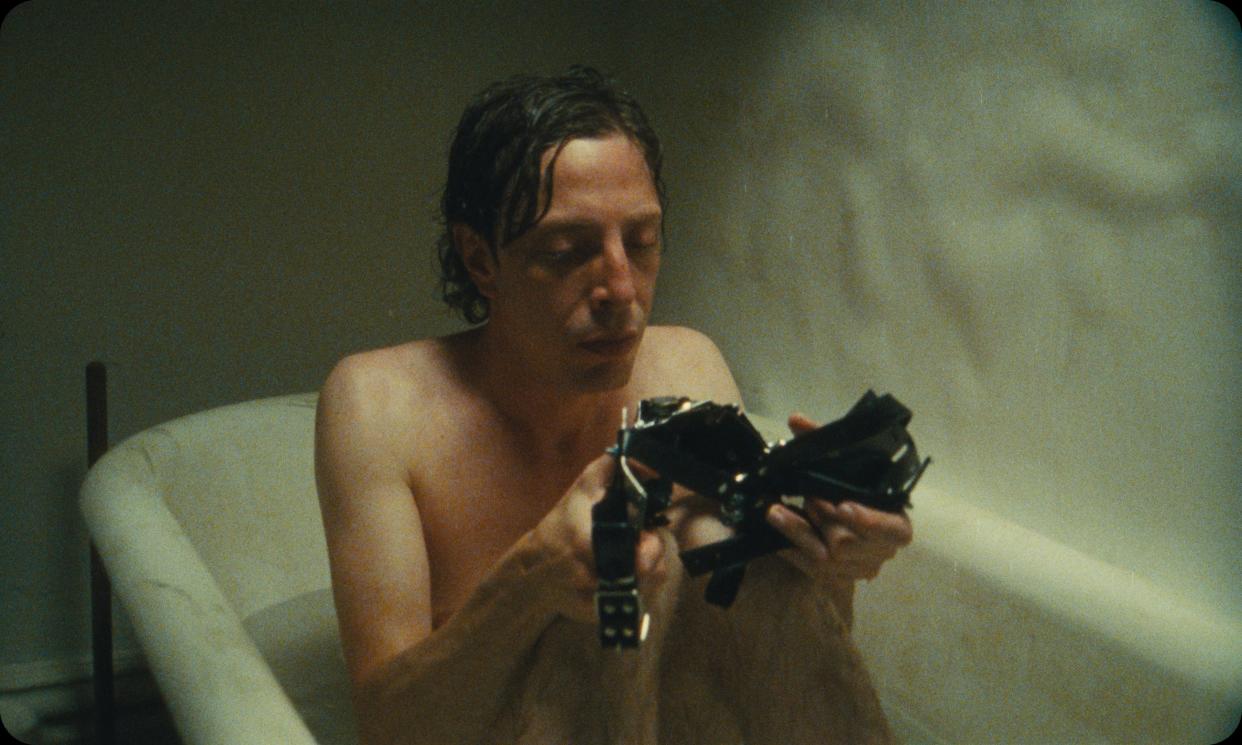‘Vulcanizadora’ Review: Joel Potrykus Blows Up Middle Age in Bleak and Shocking Style

Life comes for us all, even slacker filmmakers. Michigan-based indie stalwart Joel Potrykus has always explored loneliness in his work, but his latest, “Vulcanizadora,” plumbs a particular middle-aged variant. This is the alienation of divorced dads becoming estranged from their kids; the existential hell of knowing that you’ve made mistakes and that there’s nothing you can do to change them. In some ways, this is Potrykus’ version of “No Exit.”
To underline the passage of time, “Vulcanizadora” revives the characters Potrykus and his muse Joshua Burge played in 2014’s “Buzzard.” Ten years later, Marty Jackitansky (Burge) and Derek Skiba (Potrykus) are the same overgrown adolescents they once were, even as their circumstances have changed. Sometime in the past decade, Derek got married, had a kid, and then got divorced. Meanwhile, Marty’s petty crimes have escalated, with consequences that are harder to escape than those of his check-fraud scheme in “Buzzard.”
More from IndieWire
For its first half hour, “Vulcanizadora” is a typical Potrykus hangout movie, following Marty and Derek as they hike out into the woods towards an unclear destination. If you pay attention, Potrykus and Burge reveal clues as to what, exactly, these guys are doing out here as they walk — aside from blowing up M-80s and digging up moldy porno mags, of course. But these hints get swept away in the river of endearingly pathetic cool-guy banter that flows out of Potrykus’ mouth. Burge, his face as expressive as always, mostly just listens.
The bullshit lulls the audience into a false sense of safety, lending shock value to the reveal of Marty’s latest Erector-set weapon — and what he plans to do with it — midway through the film. The dialogue scene that follows is the most unnerving kind of dark comedy, hinging on a moment that abruptly shifts the tone from goofy “dudes rock” hangout to bleak irony. The rest is despair, as attempts at accountability and redemption are met with hostility and indifference. There are still jokes in these later scenes, but “black comedy” isn’t quite sufficient. Vantablack comedy, maybe?
Potrykus describes “Vulcanizadora” as his “most personal” as well as his “bleakest” work. It’s got a handmade touch, for sure: The movie was shot in Potrykus’ hometown of Grand Rapids, Michigan, with a minimal cast, cheap locations, and a crew full of family and friends (Joel’s partner Ashley Potrykus produced the movie, and their son Solo co-stars as Derek’s son Jeremy). The production’s modest scale is presumably what allowed Potrykus to shoot “Vulcanizadora” on 16mm, an investment that pays off with the effortless aesthetic appeal of film grain.
In a reflection of the director’s maturing tastes, “Vulcanizadora” adds arias to Potrykus’ usual heavy-metal musical cues, making this the rare movie to feature both Maria Callas and a Sepultura side project on its soundtrack. The melodrama of opera fits the sadder tone of this film: These aren’t angry young men anymore, but defeated middle-aged ones. Rather than continuing to rage against a world that refuses to acknowledge them, the Marty and Derek we see in “Vulcanizadora” are overwhelmed by their insignificance.
In the past, Potrykus, or at least his characters, were content to numb their existential terror with junk food and video games. But eventually, shit gets real. There are things in life that you can’t avoid, and things that you can’t take back. “Vulcanizadora” doesn’t know how to cope with these truths, and will alienate much, if not most, of its audience as a result. But the honesty with which it expresses these dark thoughts is commendable — and more reflective than a dozen articles on the “male loneliness epidemic.”
Grade: B
“Vulcanizadora” premiered at the 2024 Tribeca Festival. It is currently seeking U.S. distribution.
Best of IndieWire
Sign up for Indiewire's Newsletter. For the latest news, follow us on Facebook, Twitter, and Instagram.

 Yahoo News
Yahoo News 
